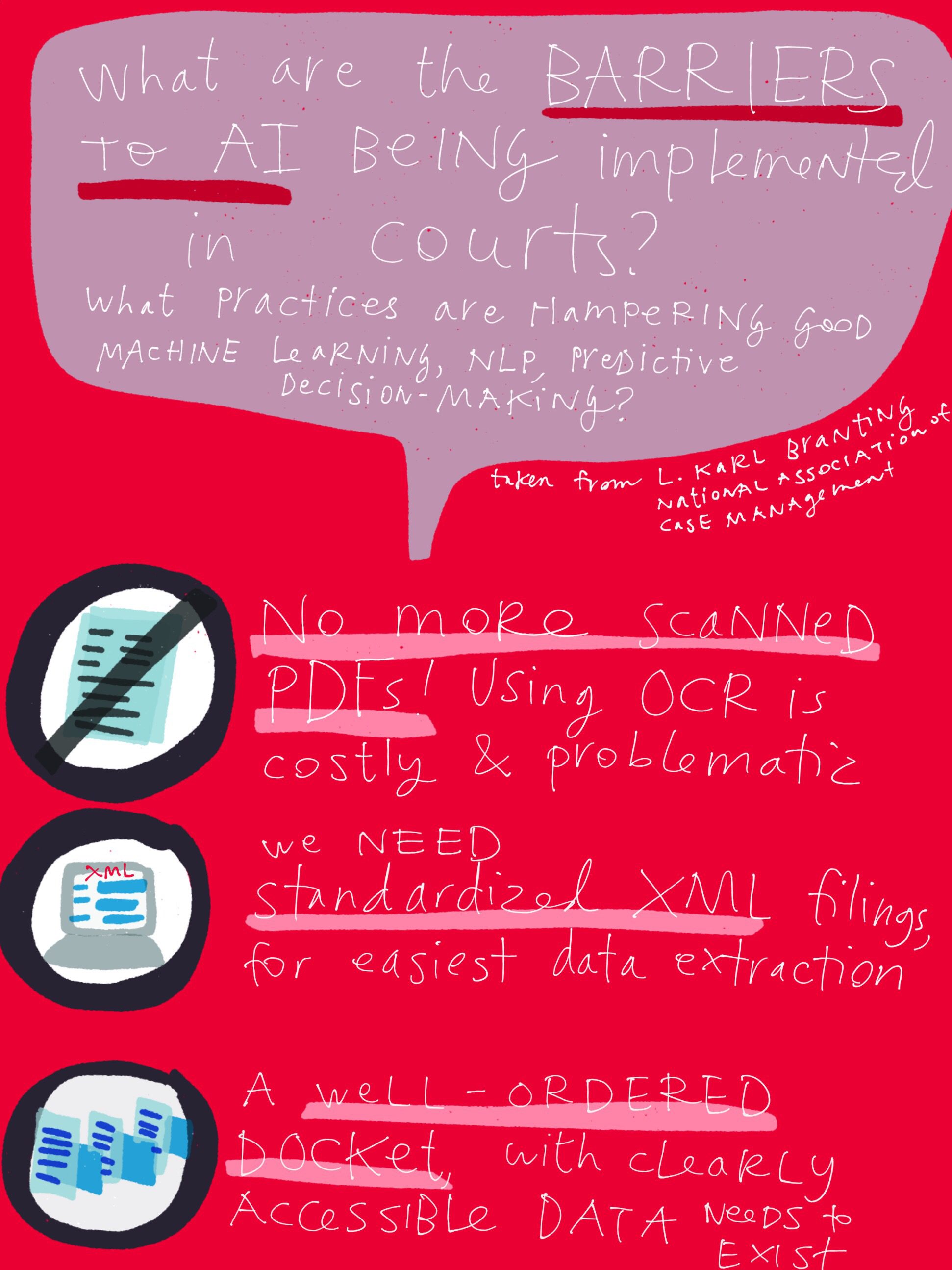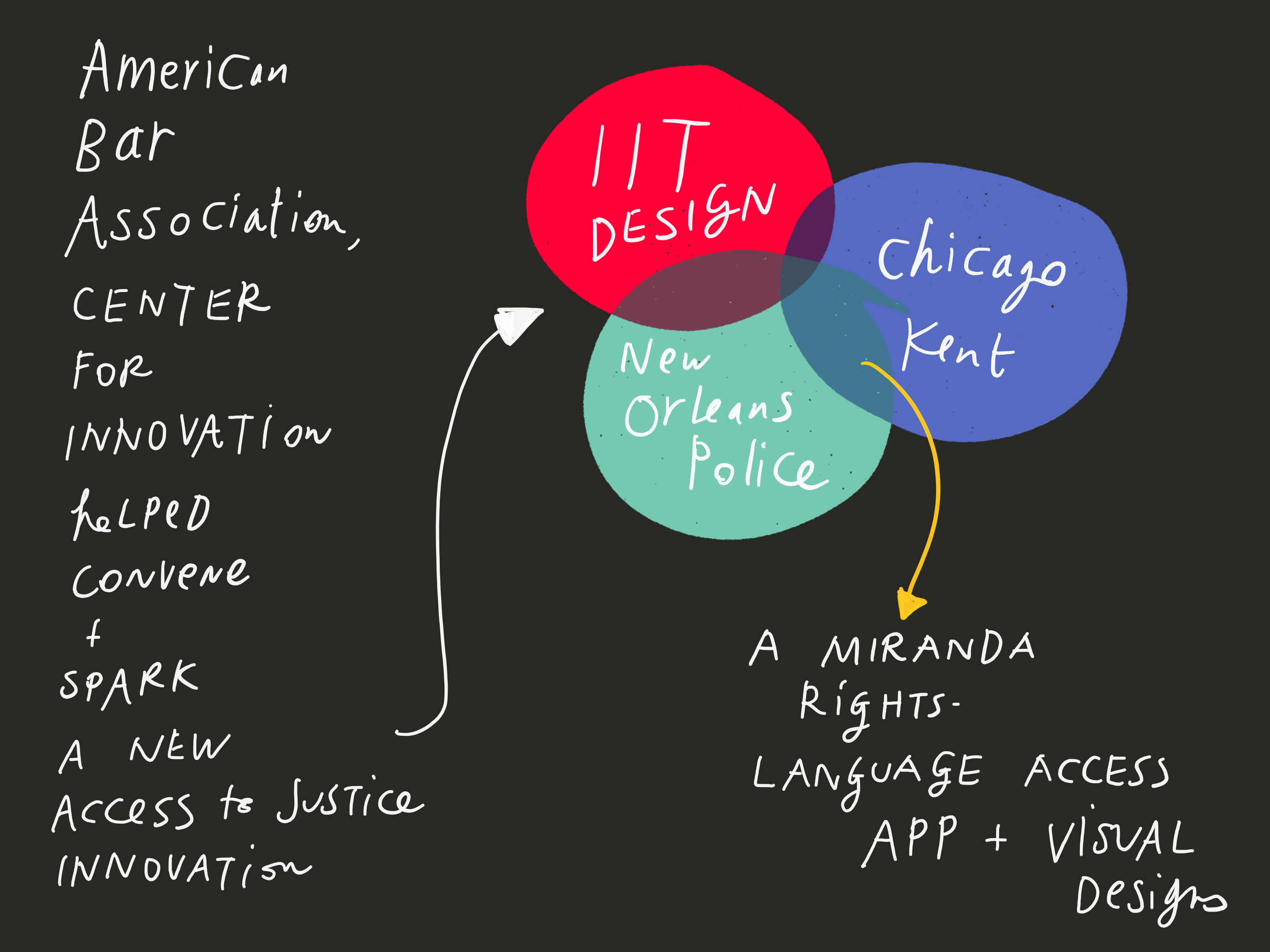 In court management circles, it is established that Artificial Intelligence and Big Data are crucial to the evolution of court services. So why isn’t the #AIrevolution taking courts by storm?
In court management circles, it is established that Artificial Intelligence and Big Data are crucial to the evolution of court services. So why isn’t the #AIrevolution taking courts by storm?
A few of the dynamics at play:
- a culture of “no” that resists change, an inertia towards anything tech
- courts that don’t have control of their own case data, because of their agreements with private vendors
- bad data practices, with filing and case tracking information that aren’t captured in clean, accurate, distinct ways
- a PDF culture, that allows scanned PDF files to be submitted (rather than a filing system that captures standardized, tagged data) -and using OCR to make sense of the PDF contents, which is a huge resource-drain




3 Comments
If I may add two dynamics in my experience in working with the Clerk of Courts:
1. Complete lack of funding for tech acquisition (at least in FL);
2. An extreme risk-aversion mindset – anything that changes the ‘status quo’ is risky;
3. Data standards that are different from county to county inside the same state.
Bad data practices are rampant. There are no real standards for inputting data, and the software used, like Tyler Tech’s Odyssey system, allows and encourages bad practices by not using pre-defined inputs and enabling manual data entry.
Do you see any routes for courts or vendors to enforce better data practices?
Let me add a perspective from a developing country of the civil law tradition (Argentina).
a) Not all cases in every tribunal are digitised.
b) The Judiciary has probably too many employees. Some of them have job stability (cannot be dismissed). AI is a clear threat to them. They would go on strike immediately if plans to incorporate AI are announced. The Ministry of Justice will try to minimise political exposure/cost (judiciary employees also vote).
c) The legal market is not sophisticated enough, big enough or predictable enough for companies or legalpreneurs to invest in AI. The government has no founds for this sorts of projects.